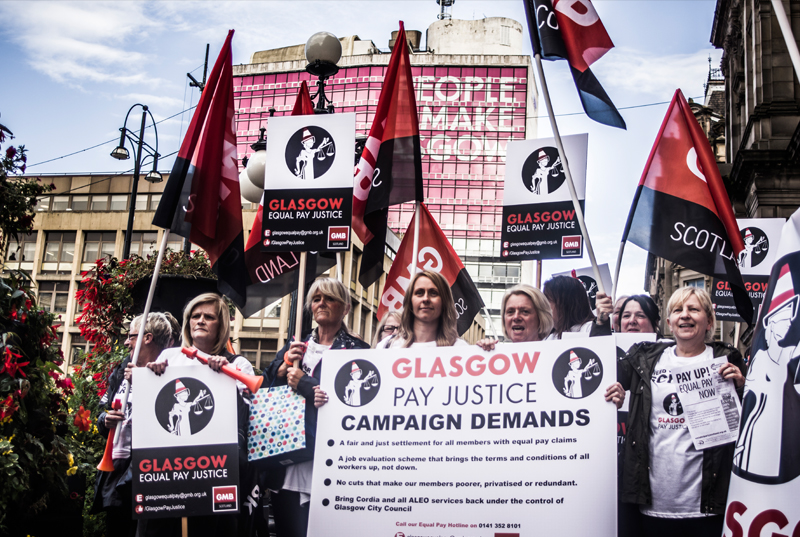Following months of lockdown and uncertainty, the Chancellor of the Exchequer has his sights set on economic recovery. If this ‘economic recovery’ looks anything like the last; we are facing another decade of austerity and the misery and public sector cuts that come with it.
Women workers, through caring and cleaning, have been at the forefront of keeping us safe from COVID-19 and low paid women had the highest risk of exposure to COVID-19. It feels particularly unjust therefore that it is likely that they will suffer most acutely in the economic aftermath of the crisis.
Women have been hit harder by austerity three times over: Women are more likely to have to rely on welfare and most likely to have to make up for the cuts to the same services through longer, often unpaid hours. Women make up the majority of public sector workforce and 73% of those affected by the public sector pay freeze were women.
Whilst great strides are being made to shatter the glass ceiling and close the gender pay gap, we are falling well behind when it comes to delivering pay justice for women furthest away from the board room.
The Fawcett Society, Institute for Fiscal Studies and University College London have warned about a drop in women’s participation in the Labour market following COVID-19, but what about the women who remain at the bottom of the pay scales in the public and private sector?
The reality is that across the UK, we have so far failed to fix the systemic problems of low and unequal pay. Equal pay cases have been won and job evaluation schemes put in place but, for the most part, they have not been kept up to date and the old ways of piling on additional, unrewarded work and selective bonus schemes are creeping their way back in.
We can be sure that against the backdrop of cuts to public services and a subsequent downturn in consumer spending in retail, the pressure will be on women to sustain services and to put up with our lot. It is never popular to demand what is right when the budget is tight but in fact it is absolutely essential, now more than ever, to fight for equal pay and pay justice.
Inequality in pay is not a simple matter. It is about job segregation, shift patterns, term time contracts, short hour contracts, lack of flexible working, lack of recognition of caring responsibilities, low pay, multiple contracts and many more issues. It is a complex system to unpick and the inequalities are so imbedded that in some industries it is hard to imagine what they might look like without the inequality at their heart. If we are going to end pay injustice, we will not only have to be brave but also creative; able to see society working in completely different ways.
One of the greatest challenges to delivering equality in the workplace is employers dividing and conquering the workforce. Threatening pay and terms and conditions in male dominated jobs when we fight for pay justice for women. But we know that equality is only coherently and sustainably delivered by levelling workers up.
The choice we face is not men vs women, but low paid workers vs austerity.
Whilst we won’t lose sight of where the cuts are coming from, we cannot sit back and accept any employer relying on discriminatory practises to meet their bottom line.
That is why it is so important that GMB Scotland has launched the Women’s Campaign Unit.
The Women’s Campaign Unit is dedicated to organising women workers in order to end pay injustice and inequality in Scotland and to challenge all employers and politicians, whether they be in local councils, Scottish or UK Governments, to truly recognise the value of women’s work.
Austerity is not an excuse; it is time for pay justice for women workers.
Rhea Wolfson, GMB Scotland's Women's Campaign Unit

